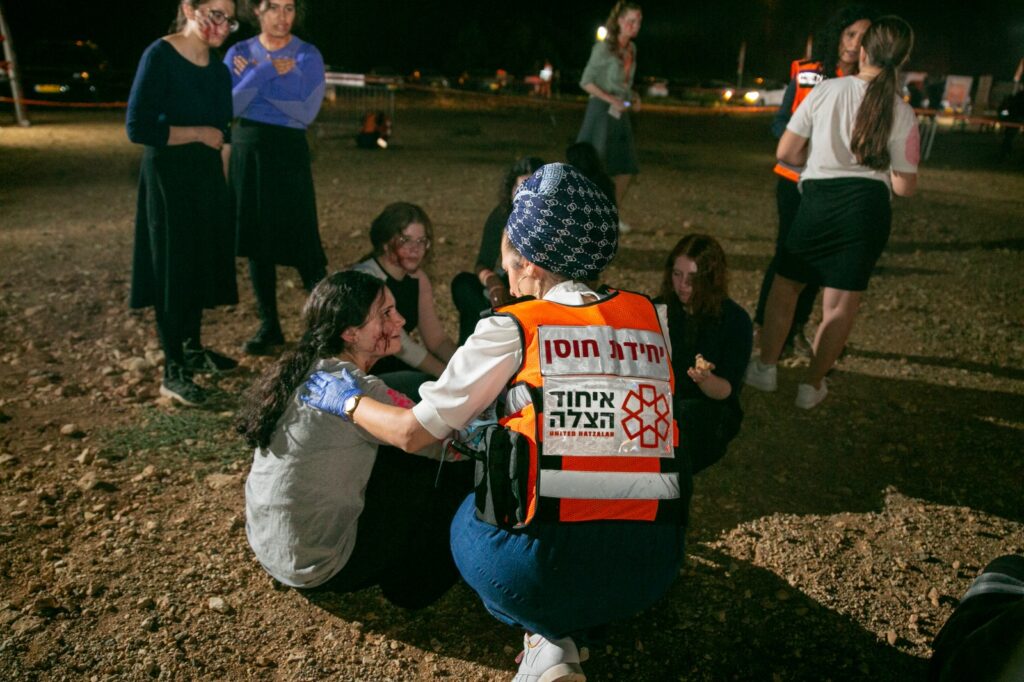In light of the rising waves of anti-semitism plaguing college campuses, city streets, and Jewish communities around the world following the October 7th, attack by Hamas against Israel, United Hatzalah has initiated several training programs to assist people impacted by these current events across the globe. The first such training course, which was given via an online forum, focused on giving tools to community leaders and trained therapists on how to implement treatment in the field during emergencies and how to treat members of their own community for psychological trauma due to the existing threats now facing them.
The course, which kicked off last week Wednesday, was led by veteran members of United Hatzalah’s Psychotrauma and Crisis Response Unit (PCRU). Clinical Psychologist Dr. Sharon Slater and Psychologist Einat Kauffman Psy.D., both of whom have vast experience in treating acute emotional stress and stabilizing patients in large-scale emergencies and disaster zones, ran the sessions which were broken up into two tracks. One track was for lay leaders, and the other track was designed to assist mental health professionals and retrain them on how to utilize their skills in a fast-paced and chaotic emergency field scenario.
Vice President of Operations for United Hatzalah Dov Maisel spoke about the reasoning behind these training courses: “The proliferation of hate crimes and antisemitism around the world is severely impacting the global Jewish community. With the growing fear that our college students, synagogue members, and neighbors are feeling, we recognized the urgent need for more responders who can provide immediate care for those suffering from emotional stress or trauma.”
Research demonstrates that immediate trauma intervention differs greatly from classic psychoanalytic and therapeutic modalities. There are techniques that can be implemented by people with no formal mental health which can be used to prevent the onset of emotional and psychological disorders.
Kaufman, who also serves as one of the directors of the PCRU, said: “Our initial goal was to offer a short and impactful course for professionals and give them some of basic the tools they need to adapt their work to field conditions. At the same time, we recognized the need to train community leaders, who do not possess formal therapeutic training, in order that they would be able to help in their own communities as well in cases of emergency or severe psychological traumas. Recognizing that there are, relatively speaking, very few professionals in the field of providing immediate psychological and emotional intervention, we developed this course to disseminate as much information as quickly as possible to people who would be called upon to provide a response in their communities.”
Dr. Slater concluded by saying: “In Israel, most clinical psychologists are psychoanalytically trained. This course was initially created to rapidly retrain Israeli mental health professionals in trauma intervention following the events of October 7th. However, the escalating situation in the Diaspora now requires both lay leaders and professionals abroad to be prepared as well. For that reason, we are offering clear, focused, trauma training protocols specifically tailored to each group. The response has been terrific.”
According to organizers, the courses, which were well attended and well received thus far will be continuing for the next couple of weeks as interest and attendance have only increased. Nearly 100 people attended the first two sessions, and another 200 have registered for the upcoming sessions next week, with more expected to sign up in the days ahead. For more information about the course or to register for one of the upcoming sessions, please send an email to [email protected].











